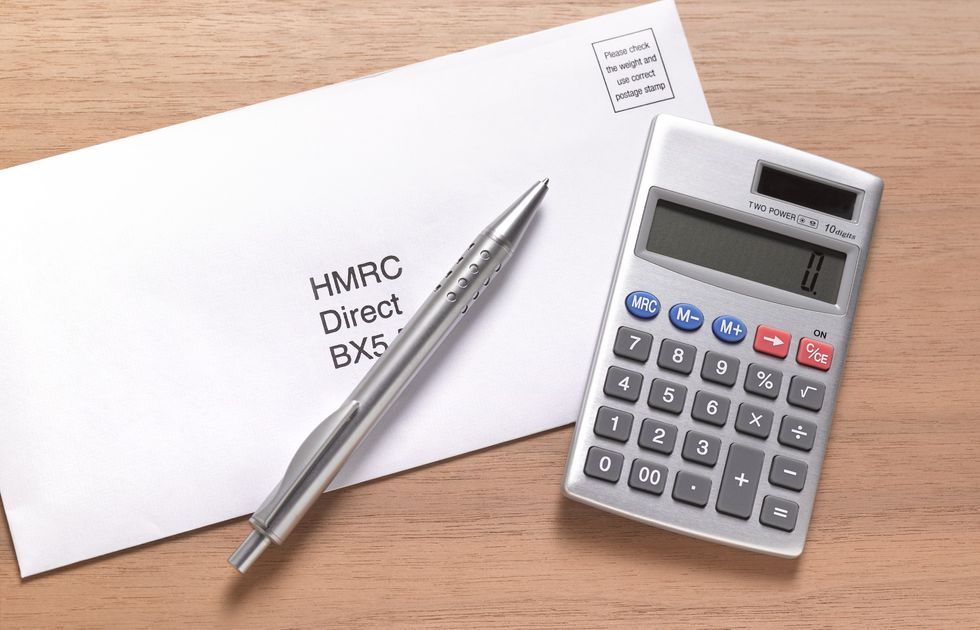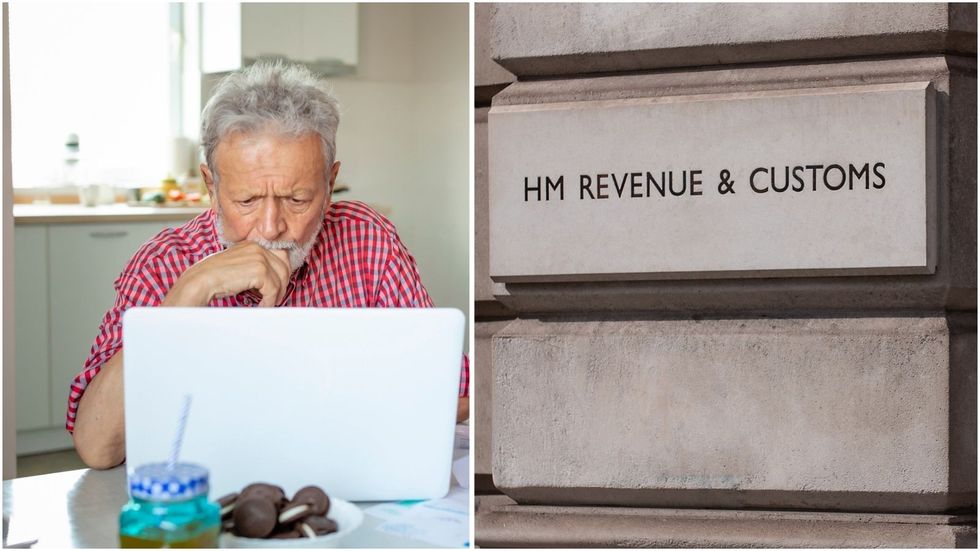Brits spent 800 years on HOLD to HMRC as Nigel Farage FUMES at 'INCOMPREHENSIBLE' wait times
GBNEWS
The overhaul aims to modernise and reform HMRC systems and processes to simplify the experience for individuals
Don't Miss
Most Read
Trending on GB News
Thousands of savers and investors are facing surprise tax bills this year as changes to Capital Gains Tax (CGT) rules and wider HMRC reforms push more people into the Self Assessment system.
The Government has already slashed the annual CGT allowance from £12,300 in 2022/23 to £6,000 in 2023/24 — and it has now been halved again to just £3,000 from April 2024.
This sharp reduction means even modest investment gains could now trigger a tax charge.
For example, someone who sells shares, a second property, or even a valuable personal item could now breach the £3,000 threshold far more easily than in previous years.
Once they do, they are required to report and pay CGT — and if they haven’t already registered for Self Assessment, they’ll need to do so.
At the same time, HMRC has introduced new rules to simplify Self Assessment reporting. The income threshold for reporting modest additional income from self-employment, property or other taxable sources has now been raised and aligned to £3,000 — meaning up to 300,000 people could be taken out of Self Assessment altogether.
However, experts warn that this simplification only applies to certain types of income and does not offset the wider trend of more people being drawn into the tax system — including due to CGT.

Capital gains tax: Thousands face 'unexpected tax bills' as HMRC's new rules take effect
GETTYRachael Griffin, tax and financial planning expert at Quilter, says the headline announcement may seem like progress, but the full picture tells a different story.
She said: "This simplification comes against a backdrop of wider tax changes that are pushing many more people into Self Assessment in the first place.
"The significant cuts to the Capital Gains Tax annual exempt amount and the dividend allowance mean that individuals who may have previously fallen below reporting thresholds are now much more likely to generate taxable income that must be declared.
"While yesterday's announcement will ease the process for some, the reality is that far more people will still need to grapple with Self Assessment than just a few years ago.
"As allowances continue to shrink and thresholds are frozen, good advice is becoming increasingly essential to avoid unexpected tax bills and ensure compliance."

HMRC's simplification comes against a backdrop of wider tax changes that are pushing many more people into Self Assessment in the first place
GETTYShe added that while the latest reforms may ease paperwork for some, "the reality is that far more people will still need to grapple with Self Assessment than just a few years ago."
With CGT charged at 10 per cent for basic-rate taxpayers and 20 per cent for higher-rate taxpayers — or 18 per cent and 24 per cent respectively on property gains — even small gains can result in bills running into hundreds or thousands of pounds.
Those who own second homes, rental properties, or large portfolios of shares or cryptoassets are especially vulnerable.

Thousands face 'unexpected tax bills' as HMRC's new rules take effect
GETTYTax experts are advising individuals to review their investment activity carefully this year and not assume they’ll be under the radar just because they weren’t taxed in the past.
Griffin warns that as allowances shrink and thresholds are frozen, "good advice is becoming increasingly essential to avoid unexpected tax bills and ensure compliance."
Taxpayers can use the GOV.UK CGT calculator or speak to a qualified financial adviser to understand their obligations and minimise their liability.
The Treasury has lost out on more than £1.4billion in capital gains tax (CGT) revenue in the 12 months to March 2025, according to new figures.
HM Revenue and Customs (HMRC) reports a sharp decline, representing a more than 10 per cent drop from the previous year's total of £14.5billion.







